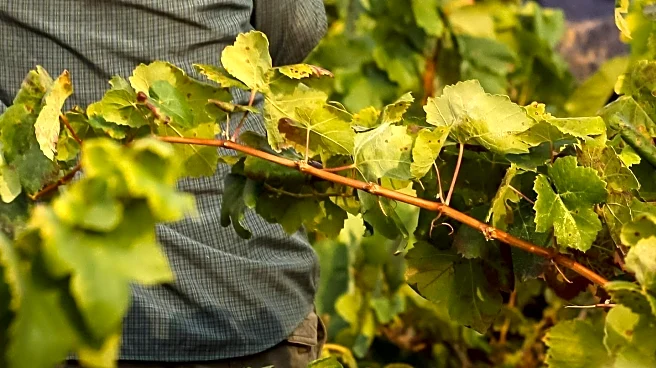What is the story about?
What's Happening?
Volunteer grape harvesting in the Côtes du Rhône wine region of France provides participants with a physically demanding yet rewarding experience. Domaine Rouge-Bleu, an organic vineyard, hosts volunteers for the autumn grape harvest, known as les vendanges. Volunteers engage in traditional hand-picking methods, which are preferred by some winemakers for preserving grape quality. Despite the challenges posed by the mistral wind and the physical demands of the work, volunteers find camaraderie and satisfaction in contributing to the winemaking process. The vineyard offers room and board in exchange for labor, allowing participants to immerse themselves in the local culture and viticulture.
Why It's Important?
The practice of volunteer grape harvesting highlights the cultural significance and tradition of winemaking in France. It provides an opportunity for individuals to learn about viticulture and contribute to the production of high-quality wines. This method of harvesting supports the preservation of traditional techniques and offers a unique form of wine tourism. By engaging volunteers, vineyards can reduce costs while fostering a sense of community and shared purpose. The experience also emphasizes the importance of sustainable practices and the role of human labor in maintaining the quality of wine production.
Beyond the Headlines
Volunteer grape harvesting raises questions about labor laws and the recognition of volunteer work in France. While some vineyards offer room and board, the legal framework requires payment for harvesters, creating a complex situation for winemakers. The tradition of communal harvests is an integral part of winemaking heritage, yet it faces challenges in modern regulatory environments. This situation underscores the need for policies that balance economic realities with cultural preservation, ensuring that volunteer contributions are valued and legally supported.















